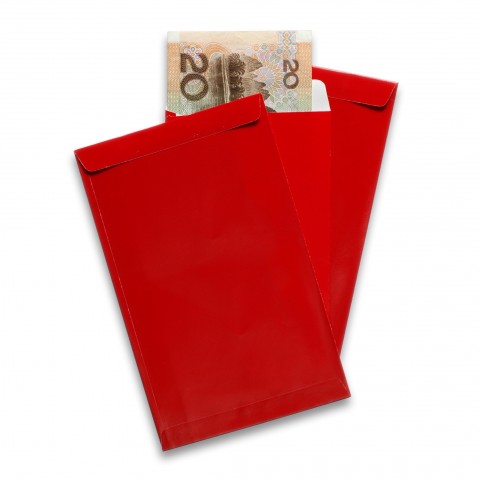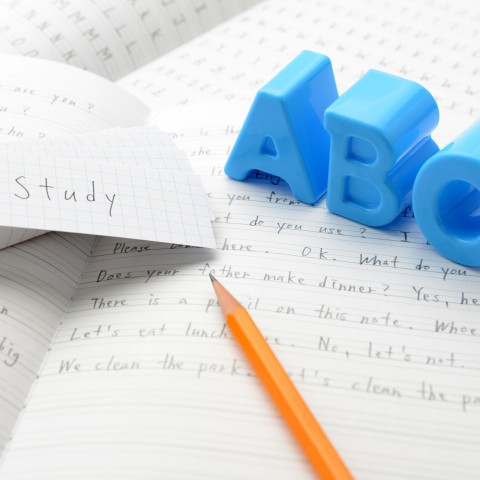
You’re learning to speak Cantonese, and it’s going well. Your confidence is growing! So much so that you feel ready to share your experiences on social media—in Cantonese.
At Learn Cantonese, we make this easy for you to get it right the first time. Post like a boss with these phrases and guidelines, and get to practice your Cantonese in the process.

1. Talking about Your Restaurant Visit in Cantonese
Eating out is fun, and often an experience you’d like to share. Take a pic, and start a conversation on social media in Cantonese. Your friend will be amazed by your language skills…and perhaps your taste in restaurants!
David eats at a restaurant with his friends, posts an image of their food, and leaves this comment:

POST
Let’s break down David’s post.
成班friend一齊試新餐廳,食到腍腍脷! (seng4 baan1 FRIEND jat1 cai4 si3 san1 caan1 teng1, sik6 dou3 lam2 lam2 lei6.)
“Trying a new restaurant with friends, it’s finger-licking delicious.”
1- 成班friend一齊試新餐廳, (seng4 baan1 FRIEND jat1 cai4 si3 san1 caan1 teng1,)
First is an expression meaning: “Whole group of friends try new restaurant together.”
In Hong Kong, new restaurants open up frequently. Sharing your eating experiences at new venues is one of the most common things to do on social media.
2- 食到腍腍脷! (sik6 dou3 lam2 lam2 lei6.)
Then comes the phrase – “finger-licking delicious.”
The phrase 腍腍脷 (lem2 lem2 lei6) indicate the action of “licking one’s lips” after eating delicious food.
COMMENTS
In response, David’s friends leave some comments.
1- 呢度真係又靚又好味。 (ni1 dou6 zan1 hai6 jau6 leng3 jau6 hou2 mei6.)
His girlfriend, Karen, uses an expression meaning – “It’s really charming and delicious.”
Karen agrees with David that the experience is positive, adding her own take on it.
2- 果然好介紹! (gwo2 jin4 hou2 gaai3 siu6!)
His college friend, Will, uses an expression meaning – “A very good recommendation indeed!”
Will is pleased with David’s recommendation.
3- 做乜唔叫埋我 (ಠ_ಠ) (zou6 mat1 m4 giu3 maai4 ngo5)
His girlfriend’s high school friend, Maggie, uses an expression meaning – “Why didn’t you invite me? (ಠ_ಠ)”
Maggie is disappointed that she’s not part of the group.
4- 好似好貴喎。 (hou2 ci3 hou2 gwai3 wo3.)
His girlfriend’s nephew, Tommy, uses an expression meaning – “It looks expensive.”
Tommy is the only critic, and he shares his impression of the restaurant with this comment.
VOCABULARY
Find below the key vocabulary for this lesson:
餐廳 (caan1 teng1): “restaurant”
好味 (hou2 mei6): “delicious”
果然 (gwo2 jin4): “as expected; sure enough; indeed”
介紹 (gaai3 siu6): “introduction”
叫埋 (giu3 maai4): “also ask along”
好似 (hou2 ci3): “appear to be; be like; look like”
貴 (gwai3): “expensive”
So, let’s practice a bit. If a friend posted something about having dinner with friends, which phrase would you use?
Now go visit a Cantonese restaurant, and wow the staff with your language skills!
2. Post about Your Mall Visit in Cantonese
Another super topic for social media is shopping—everybody does it, most everybody loves it, and your friends on social media are probably curious about your shopping spree! Share these Cantonese phrases in posts when you visit a mall.
Karen shops with her sister at the mall, posts an image of the two of them together, and leaves this comment:

POST
Let’s break down Karen’s post.
周圍都減緊價,我同細妹都大出血! (zau1 wai4 dou1 gaam2 gan2 gaa3, ngo5 tung4 sai3 mui2 dou1 daai6 ceot1 hyut3!)
“Everywhere is on sale. Sis and I spent A LOT!”
1- 周圍都減緊價, (zau1 wai4 dou1 gaam2 gan2 gaa3,)
First is an expression meaning “everywhere is on sale.”
Many shops promote their sales campaigns via social media, and at the same time, consumers would tell their friends or followers via social media about the good deals they found.
2- 我同細妹都大出血! (ngo5 tung4 sai3 mui2 dou1 daai6 ceot1 hyut3!)
Then comes the phrase – “I and sister spent a lot!”
literally 大出血 (daai6 ceot1 hyut3) means “to bleed badly”, but nowadays we use this term to refer to “having spent a lot of money.”
COMMENTS
In response, Karen’s friends leave some comments.
1- 我琴日都買到癲咗! (ngo5 kam4 jat6 dou1 maai5 dou3 din1 zo2!)
Her high school friend, Maggie, uses an expression meaning – “I shopped like crazy yesterday as well!”
Maggie shares a personal detail here, finding common ground with Karen’s post.
2- 你同細妹好似樣喎。 (nei5 tung4 sai3 mui2 hou2 ci5 joeng2 wo3.)
Her boyfriend’s high school friend, Kitty, uses an expression meaning – “You and your sister look alike.”
Kitty comments on the two sisters’ looks.
3- 係?等我都去睇吓。 (hai6? dang2 ngo5 dou1 heoi3 tai2 haa2.)
Her neighbor, Lisa, uses an expression meaning – “Really? I’ll go check it out too.”
Lisa is pleased with the news about the sales and wants to experience it too.
4- 囧… (gwing2…)
Her boyfriend, David, uses an expression meaning – “Yikes…”
David leaves an eloquent one-word comment that speaks volumes! He probably doesn’t like shopping in malls, or he’s not crazy about the girls’ massive spending. This comment is open for interpretation.
VOCABULARY
Find below the key vocabulary for this lesson:
周圍 (zau1 wai4): “everywhere”
減價 (gaam2 gaa3): “sale; price reduction”
細妹 (sai3 mui2): “younger sister”
琴日 (kam4 jat6): “yesterday”
癲 (din1): “crazy”
似樣 (ci5 joeng2): “look alike; resemble”
囧 (gwing2): “an ideographic emoticon representing feelings such as annoyance, shock, embarrassment, awkwardness, etc.”
So, if a friend posted something about going shopping, which phrase would you use?
3. Talking about a Sport Day in Cantonese
Sports events, whether you’re the spectator or the sports person, offer fantastic opportunity for great social media posts. Learn some handy phrases and vocabulary to start a sport-on-the-beach conversation in Cantonese.
David plays with his friends at the beach, posts an image of the crowd on the beach, and leaves this comment:

POST
Let’s break down David’s post.
天氣咁好又咁齊人,今次嘅沙灘聚會真係好成功! (tin1 hei3 gam3 hou2 jau6 gam3 cai4 jan4, gam1 ci3 ge3 saa1 taan1 zeoi6 wui6 zan1 hai6 hou2 sing4 gung1!)
“With good weather and full attendance, this beach gathering is really successful!”
1- 天氣咁好又咁齊人 (tin1 hei3 gam3 hou2 jau6 gam3 cai4 jan4,)
First is an expression meaning “weather is good and we have all people attending,”
咁…又… (gam3… jau6…) is a common sentence pattern used to describe two qualities about one subject. It’s similar to “not only… but also…”, or “… and…”.
2- 今次嘅沙灘聚會真係好成功! (gam1 ci3 ge3 saa1 taan1 zeoi6 wui6 zan1 hai6 hou2 sing4 gung1!)
Then comes the phrase – “this time beach gathering is really successful!”
Hong Kong has a long coastline with many public and private bays and beaches; however, more and more of them are not suitable for swimming anymore because of poor water quality due to development and urbanization. A total of 41 beaches, about half of the ones suitable for swimming, are managed by the government.
COMMENTS
In response, David’s friends leave some comments.
1- 趁冬天之前搞多次啦。 (can3 dung1 tin1 zi1 cin4 gaau2 do1 ci3 laa1.)
His college friend, Will, uses an expression meaning – “Let’s do it again before winter starts.”
Will seems pleased with David’s post and suggests that they play on the beach again.
2- 年青人,真係開心,Enjoy! (nin4 cing1 jan4, zan1 hai6 hoi1 sam1, ENJOY!)
His supervisor, Sam, uses an expression meaning – “All the young people look so happy, enjoy!”
The young crowd’s happiness on the beach catches Sam’s attention.
3- 邊個贏呀? (bin1 go3 jeng4 aa3?)
His girlfriend, Karen, uses an expression meaning – “Who won?”
Karen is interested in the outcome of the game, and asks for more details.
4- 咁熱,我寧願喺屋企打機。 (gam3 jit6, ngo5 ning4 jyun2 hai2 uk1 kei2 daa2 gei1.)
His girlfriend’s nephew, Tommy, uses an expression meaning – “It’s so hot. I’d rather stay home and play video games.”
Tommy is clearly not an outdoor type of guy! He’s again the negative commentator.
VOCABULARY
Find below the key vocabulary for this lesson:
天氣 (tin1 hei3): “weather”
沙灘 (saa1 taan1): “beach”
成功 (sing4 gung1): “successful”
冬天 (dung1 tin1): “winter”
贏 (jeng4): “winter”
寧願 (ning4 jyun2): “would rather”
打機 (daa2 gei1): “play video games”
Which phrase would you use if a friend posted something about sports?
But sport is not the only thing you can play! Play some music, and share it on social media.
4. Share a Song on Social Media in Cantonese
Music is the language of the soul, they say. So, don’t hold back—share what touches your soul with your friends!
Karen shares a song she just heard at a party, posts an image of the artist, and leaves this comment:

POST
Let’s break down Karen’s post.
誠意推介E神新歌,好好聽! (sing4 ji3 teoi1 gaai3 E san4 san1 go1, hou2 hou2 teng1!)
“Highly recommend Eason’s new song. It’s so good!”
1- 誠意推介E神新歌, (sing4 ji3 teoi1 gaai3 E san4 san1 go1,)
First is an expression meaning “Sincerely recommend Eason’s new song.”
The phrase 誠意推介 (sing4 ji3 teoi1 gaai3), literally “sincerely recommending”, is used a lot in social media to share something you think people would like.
2- 好好聽! (hou2 hou2 teng1!)
Then comes the phrase – “It’s really good!”
The duplication of 好 (hou2) in this phrase serves an exaggeration purpose, it only works when it’s followed by a verb. For example, 好食 (hou2 sik6), literally “good to eat”, is “yummy”; and 好好食 (hou2 hou2 sik6) means “very yummy”.
COMMENTS
In response, Karen’s friends leave some comments.
1- 都唔知原來你鍾意E神。 (dou1 m4 zi1 jyun4 loi4 nei5 zung1 ji3 E san4.)
Her high school friend, Maggie, uses an expression meaning – “Didn’t know you like Eason.”
Maggie is learning something new about her friend today! Use this comment to make conversation.
2- Agree! 我都買咗佢隻新碟。 (AGREE! ngo5 dou1 maai5 zo2 keoi5 zek3 san1 dip2.)
Her boyfriend’s high school friend, Kitty, uses an expression meaning – “Agree! I also bought his new album.”
Kitty shares Karen’s love of the blues singer! So, use this to show your agreement.
3- 將首舊歌重新演繹,又幾好聽喎。 (zoeng1 sau2 gau6 go1 cung4 san1 jin2 jik6, jau6 gei1 hou2 teng1 wo3.)
Her neighbor, Lisa, uses an expression meaning – “He’s covering an old song. It’s pretty good.”
LIsa seems to know her music and shares an interesting bit of information about the singer, as well as her opinion.
4- 我後生嗰陣都係聽呢首歌。 (ngo5 hau6 saang1 go2 zan6 dou1 hai6 teng1 ni1 sau2 go1.)
Her supervisor, Sam, uses an expression meaning – “I used to listen to this song back in my day.”
Sam is taken back to his younger years by the song and shares a memory.
VOCABULARY
Find below the key vocabulary for this lesson:
誠意 (sing4 ji3): “sincerity”
推介 (teoi1 gaai3): “recommend”
歌 (go1): “song”
碟 (dip2): “music record; CD; plate”
重新 (cung4 san1): “once more; again”
演繹 (jin2 jik6): “perform”
後生 (hau6 saang1): “young”
Which song would you share? And what would you say to a friend who posted something about sharing music or videos?
Now you know how to start a conversation about a song or a video on social media!
5. Cantonese Social Media Comments about a Concert
Still on the theme of music—visiting live concerts and shows just have to be shared with your friends. Here are some handy phrases and vocab to wow your followers in Cantonese!
David goes to a concert, posts an image of it, and leaves this comment:

POST
Let’s break down David’s post.
一世人至少都要睇一次麥當娜演唱會。超讚! (jat1 sai3 jan4 zi3 siu2 dou1 jiu3 tai2 jat1 ci3 maak6 dong1 naa4 jin2 coeng3 wui5. ciu1 zaan3!)
“You have to go to Madonna’s concert at least once in your lifetime. It’s awesome!”
1- 一世人至少都要睇一次麥當娜演唱會。 (jat1 sai3 jan4 zi3 siu2 dou1 jiu3 tai2 jat1 ci3 maak6 dong1 naa4 jin2 coeng3 wui5.)
First is an expression meaning “In one life, at least watch Madonna concert once.”
Many local and international singers perform live concerts in Hong Kong. AsiaWorld-Expo, Hong Kong Coliseum and Hong Kong Convention and Exhibition Centre are the most popular concert venues.
2- 超讚!
(ciu1 zaan3!)
Then comes the phrase – “Super thumbs up!”
This term actually originated in Taiwan, and became widely used in social media and magazine in Hong Kong.
COMMENTS
In response, David’s friends leave some comments.
1- 現場氣氛好High呀! (jin6 coeng4 hei3 fan1 hou2 HIGH aa3!)
His college friend, Will, uses an expression meaning – “The atmosphere is ecstatic!”
Will is obviously also at the concert, and shares his impression.
2- 你個位好前喎!你就好啦,我坐山頂呀。 (nei5 go3 wai2 hou2 cin4 wo3! nei5 zau6 hou2 laa1, ngo5 co5 saan1 deng2 aa3.)
His girlfriend’s high school friend, Maggie, uses an expression meaning – “You’re sitting in the front, that’s so good! I’m sitting way up in the back.”
Like the previous poster, Maggie also chats about her experiences of the same event, making for great conversation.
3- 嗌到喉嚨痛,但真係好正! (aai3 dou3 hau4 lung4 tung3, daan6 zan1 hai6 hou2 zeng3!)
His girlfriend, Karen, uses an expression meaning – “Got a sore throat from shouting (out the lyrics), but it was fabulous!”
Karen adds her opinion of the concert and shares personal news..
4- 搞到我都心郁郁想去睇! (gaau2 dou3 ngo5 dou1 sam1 juk1 juk1 soeng2 heoi3 tai2.)
His high school friend, Kitty, uses an expression meaning – “You made me want to go see it too!”
Kitty is inspired by all these comments to also attend a Madonna concert.
VOCABULARY
Find below the key vocabulary for this lesson:
一世人 (jat1 sai3 jan4): “one’s whole life; a lifetime”
至少 (zi3 siu2): “at least”
演唱會 (jin2 coeng3 wui5): “concert”
氣氛 (hei3 fan1): “atmosphere”
嗌 (aai3): “shout; yell; speak loudly”
喉嚨 (hau4 lung4): “throat”
心郁郁 (sam1 juk1 juk1): “tempted; eager to do something”
If a friend posted something about a concert , which phrase would you use?
6. Talking about an Unfortunate Accident in Cantonese
Oh dear. You broke something by accident. Use these Cantonese phrases to start a thread on social media. Or maybe just to let your friends know why you are not contacting them!
Karen accidentally breaks her mobile phone, and leaves this comment:

POST
Let’s break down Karen’s post.
個電話自殺跳咗落樓梯… 。゚(゚´Д`゚)゚。 (go3 din6 waa2 zi6 saat3 tiu3 zo2 lok6 lau4 tai1…)
“My phone committed suicide and jumped down the stairs… ”
1- 個電話自殺 (go3 din6 waa2 zi6 saat3)
First is an expression meaning “The phone commited suicide.”
Sometimes inanimate objects are personified to sound cute on social media.
2- 跳咗落樓梯… (tiu3 zo2 lok6 lau4 tai1…)
Then comes the phrase – “jumped down the stairs…”
A verb followed by 咗 (zo2) means the action or situation is placed in past time, marking perfective aspect or continuous state. Since Cantonese do not have verb conjugation, we use particles like this to clarify.
COMMENTS
In response, Karen’s friends leave some comments.
1- 阿偉,你識做啦! (David, nei5 sik1 zou6 laa1!)
Her high school friend, Maggie, uses an expression meaning – “David, you know what to do!”
Maggie doesn’t address Karen, but chats with David, knowing he’d be reading the post too. This is a clever way of keeping the conversation going.
2- Maggie,就算你唔講我都會買返部俾佢啦。 (Maggie, zau6 syun3 nei5 m4 gong2 ngo5 dou1 wui2 maai5 faan1 bou6 bei2 keoi5 laa1.)
Her boyfriend, David, uses an expression meaning – “Maggie, I’d buy her a new one even if you didn’t say so.”
David is being an awesome boyfriend! He clearly shows his caring consideration with this comment.
3- 係時候換部新嘅。 (hai6 si4 hau6 wun6 bou6 san1 ge3.)
Her boyfriend’s high school friend, Kitty, uses an expression meaning – “It’s time to get a new one.”
Kitty states the obvious, just to participate in the conversation.
4- 啱啱出新款,跌得係時候。 (aam1 aam1 ceot1 san1 fun2, dit3 dak1 hai6 si4 hau6.)
Her college friend, Will, uses an expression meaning – “New models just came out. What good timing.”
Will is an optimist and sees this accident as a good opportunity to upgrade to a newer phone.
VOCABULARY
Find below the key vocabulary for this lesson:
電話 (din6 waa2): “phone”
自殺 (zi6 saat3): “commit suicide”
樓梯 (lau4 tai1): “stairs”
就算 (zau6 syun3): “even if; given that”
換 (wun6): “change”
啱啱 (aam1 aam1): “just now”
新款 (san1 fun2): “new model; new style”
If a friend posted something about having broken something by accident, which phrase would you use?
So, now you know how to describe an accident in Cantonese. Well done!
7. Chat about Your Boredom on Social Media in Cantonese
Sometimes, we’re just bored with how life goes. And to alleviate the boredom, we write about it on social media. Add some excitement to your posts by addressing your friends and followers in Cantonese!
David gets bored at home, and leaves this comment:

POST
Let’s break down David’s post.
原來放假冇嘢做都幾悶。 (jyun4 loi4 fong3 gaa3 mou5 je5 zou6 dou1 gei2 mun6.)
“Didn’t realize it’d be so boring to have nothing to do on holiday.”
1- 原來 (jyun4 loi4)
First is an expression meaning “Turns out.”
This term 原來 (jyun4 loi4) indicates that the following statement is a newly found idea that was unknown to the person before.
2- 放假冇嘢做都幾悶。 (fong3 gaa3 mou5 je5 zou6 dou1 gei2 mun6.)
Then comes the phrase – “having nothing to do on holiday is quite boring.”
This is not common in Hong Kong. According to the 2015 Survey on Hong Kong consumer travel spending patterns, its citizens spend around 70% of their holidays traveling abroad. The most popular destinations are Japan, South Korea, Thailand, and Taiwan.
COMMENTS
In response, David’s friends leave some comments.
1- 悶?又話要執屋? (mun6? jau6 waa6 jiu3 zap1 uk1?)
His girlfriend, Karen, uses an expression meaning – “Boring? You told me you were gonna clean up the house!”
Karen partakes in the conversation – is she serious here? Or perhaps teasing her boyfriend? Hard to tell!
2- 啊!阿偉,你死喇! (o3! aa3 wai5, nei5 sei2 laa3!)
His girlfriend’s high school friend, Maggie, uses an expression meaning – “Uh-oh! David, you’re in trouble!”
Maggie becomes part of Karen and David’s conversation, leaving a lighthearted comment.
3- 下個禮拜會好忙,你而家有得唞好唞吓。 (haa6 go3 lai5 baai3 wui5 hou2 mong4, nei5 ji4 gaa1 jau5 dak1 tau2 hou2 tau2 haa5.)
His supervisor, Sam, uses an expression meaning – “It’s gonna be hectic next week. You better rest up while you can.”
Sam is the responsible adult and warns David to rest before returning to work.
4- 你可以過嚟幫我執屋。 (nei5 ho2 ji3 gwo3 lei4 bong1 ngo5 zap1 uk1.)
His college friend, Will, uses an expression meaning – “You can come clean up my house.”
Will sees an opportunity in the banter Karen started. He is probably joking!
VOCABULARY
Find below the key vocabulary for this lesson:
放假 (fong3 gaa3): “be on holiday”
悶 (mun6): “boring”
執屋 (zap1 uk1): “clean up the house”
陪 (pui4): “accompany; keep someone company”
禮拜 (lai5 baai3): “week”
唞 (tau2): “rest; catch one’s breath”
過嚟 (gwo3 lei4): “come over”
If a friend posted something about being bored, which phrase would you use?
Still bored? Share another feeling and see if you can start a conversation!
8. Exhausted? Share It on Social Media in Cantonese
So, you’re sitting in public transport after work, and feel like chatting online. Well, converse in Cantonese about how you feel, and let your friends join in!
Karen feels exhausted after a long day at work, posts an image of herself looking tired, and leaves this comment:

POST
Let’s break down Karen’s post.
典解啲嘢做極都做唔完,攰死人咩! (din2 gaai2 di1 je5 zou6 gik6 dou1 zou6 m4 jyun4, gui6 sei2 jan4 me1!)
“Why are there so many things to do at work? I’m dead tired.”
1- 典解啲嘢做極都做唔完, (din2 gaai2 di1 je5 zou6 gik6 dou1 zou6 m4 jyun4,)
First is an expression meaning “Why are the tasks endless.”
典解 (din2 gaai2) is the playful version of 點解 (dim2 gaai2) “why” used by Hong Kong girls on social media.
2- 攰死人咩! (gui6 sei2 jan4 me1!)
Then comes the phrase – “tired to death!”
The pattern Adjective+死人 (lit. “dead people”) is a common way to make the adjective more extreme and stronger.
COMMENTS
In response, Karen’s friends leave some comments.
1- 永遠十卜你! (wing5 jyun5 sap6 buk1 nei5!)
Her high school friend, Maggie, uses an expression meaning – “Support you forever!”
Maggie seems to show her commitment to their friendship with this comment – she clearly feels for Karen!
2- 加油!好快又放假㗎喇! (gaa1 jau2! hou2 faai3 jau6 fong3 gaa3 gaa3 laa3!)
Her boyfriend’s high school friend, Kitty, uses an expression meaning – “Hang in there! The holidays will be here again soon!”
Kitty tries to inject Karen with some optimism about the holidays ahead.
3- 我煲咗啲湯俾你,好好補吓。 (ngo5 bou1 zo2 di1 tong1 bei2 nei5, hou2 hou2 bou2 haa5.)
Her neighbor, Lisa, uses an expression meaning – “I made you some soup. It‘ll help restore your energy.”
Lisa is being an awesome neighbour! She shows caring and consideration with this comment.
4- 做大人真係辛苦。 (zou6 daai6 jan4 zan1 hai6 san1 fu2.)
Her nephew, Tommy, uses an expression meaning – “It’s so tough being an adult.”
Tommy imparts an uncommonly mature observation with this comment.
VOCABULARY
Find below the key vocabulary for this lesson:
攰 (gui6): “tired”
永遠 (wing5 jyun5): “forever”
十卜 (sap6 buk1): “support (slang)”
加油 (gaa1 jau2): “hang in there”
煲 (bou1): “cook; stew; boil”
補 (bou2): “replenish; restore”
大人 (daai6 jan4): “adult”
If a friend posted something about being exhausted, which phrase would you use?
Now you know how to discuss exhaustion in Cantonese! Well done.
9. Talking about an Injury in Cantonese
So life happens, and you manage to hurt yourself during a soccer game. Very Tweet-worthy! Here’s how to do it in Cantonese.
David suffers a painful injury during a soccer game, posts an image of him holding his knee, and leaves this comment:

POST
Let’s break down David’s post.
又整親,膝頭哥痛到不得了。 (jau6 zing2 can1, sat1 tau4 go1 tung3 dou3 bat1 dak1 liu5.)
“I got hurt again. My knees are in pain.”
1- 又整親, (jau6 zing2 can1,)
First is an expression meaning “hurt again,”
親 (can1) is often found following a verb to mean an action that’s unintentional done to someone’s body and causes injury. For examples, 跌親 (dit3 can1) “fall”; 仆親 (puk1 can1) “trip and fall”; 跣親 (sin3 can1) “slip and fall”; 淥親 (luk6 can1) “get burnt by hot water”; 凍親 (dung3 can1) “catch a cold”.
2- 膝頭哥痛到不得了。 (sat1 tau4 go1 tung3 dou3 bat1 dak1 liu5.)
Then comes the phrase – “knees are so painful.”
Other than 膝頭哥 (sat1 tau4 go1), another colloquial term for “kneecap” or “patella” is 菠蘿蓋 (bo1 lo4 goi3), which literally means “pineapple lid”.
COMMENTS
In response, David’s friends leave some comments.
1- 真係唔認老都唔得。 (zan1 hai6 m4 jing6 lou5 dou1 m4 dak1.)
His college friend, Will, uses an expression meaning – “We really have to admit that we’ve aged.”
Will makes a sober observation about their age.
2- 睇咗醫生未? (tai2 zo2 ji1 sang1 mei6?)
His neighbor, Lisa, uses an expression meaning – “Have you gone to the doctor yet?”
Lisa expresses concern and caring with this question, and she would also like more information.
3- 早日康復。 (zou2 jat6 hong1 fuk6.)
His supervisor, Sam, uses an expression meaning – “Get well soon.”
Sam uses a common phrase to wish David well after the injury.
4- 有個幾好嘅物理治療師,幾時得閒?我帶你去。 (jau5 go3 gei2 hou2 ge3 mat6 lei5 zi6 liu4 si1, gei2 si4 dak1 haan4? ngo5 daai3 nei5 heoi3.)
His high school friend, Kitty, uses an expression meaning – “There’s a pretty good physiotherapist nearby. When will you be free? I’ll take you there.”
Kitty shows her caring and concern in a different way, by offering to help David.
VOCABULARY
Find below the key vocabulary for this lesson:
整親 (zing2 can1): “injure; get hurt”
膝頭哥 (sat1 tau4 go1): “kneecap; knee”
不得了 (bat1 dak1 liu5): “extremely; disastrous”
醫生 (ji1 sang1): “doctor”
康復 (hong1 fuk6): “recover”
物理治療師 (mat6 lei5 zi6 liu4 si1): “physiotherapist”
得閒 (dak1 haan4): “have free time”
If a friend posted something about being injured, which phrase would you use?
We love to share our fortunes and misfortunes; somehow that makes us feel connected to others.
10. Starting a Conversation Feeling Disappointed in Cantonese
Sometimes things don’t go the way we planned. Share your disappointment about this with your friends!
Karen feels disappointed about today’s weather, posts an image of it, and leaves this comment:

POST
Let’s break down Karen’s post.
又熱又潮濕,好辛苦!幾時先到秋天? (jau6 jit6 jau6 ciu4 sap1, hou2 san1 fu2! gei2 si4 sin1 dou3 cau1 tin1?)
“I’m so sick of the hot and humid weather! When will autumn arrive?”
1- 又熱又潮濕,好辛苦! (jau6 jit6 jau6 ciu4 sap1, hou2 san1 fu2!)
First is an expression meaning “hot and humid, so tough!”
Weather in Hong Kong is hot and humid from May to September. Temperatures can rise as high as 95°F (35°C), and humidity levels can make it feel even hotter than it is.
2- 幾時先到秋天? (gei2 si4 sin1 dou3 cau1 tin1?)
Then comes the phrase – “When will autumn arrive?”
The mild autumns have been becoming shorter than normal in the last few years (said to be due to global warming). Generally speaking, October and November are the autumn months in Hong Kong, it’s also the best season to visit.
COMMENTS
In response, Karen’s friends leave some comments.
1- 我日日都開行冷氣。 (ngo5 jat6 jat6 dou1 hoi1 hang4 laang5 hei3.)
Her high school friend, Maggie, uses an expression meaning – “I turn on the air-conditioner every day.”
Maggie shows that she is agreeing with Karen’s post about the weather by sharing a personal experience.
2- 小心喺冷氣房一出一入好易凍親。 (siu2 sam1 hai2 laang5 hei3 fong2 jat1 ceot1 jat1 jap6 hou2 ji6 dung3 can1.)
Her neighbor, Lisa, uses an expression meaning – “Be careful. It’s easy to catch a cold when you go in and out of AC rooms.”
Lisa is clearly a very caring person. She expresses concern for Karen’s health, because moving between abrupt temperature changes can challenge the immune system. “AC” stands for “air conditioned”.
3- 我哋要著西裝咪仲熱。 (ngo5 dei6 jiu3 zoek3 sai1 zong1 mei6 zung6 jit6.)
Her supervisor, Sam, uses an expression meaning – “It’s even worse for us who have to wear suits.”
Sam also empathises with Karen’s predicament, but he points out that he has it even worse!
4- 新聞話香港仲熱過非洲呀! (san1 man2 waa6 hoeng1 gong2 zung6 jit6 gwo3 fei1 zau1 aa3!)
Her college friend, Will, uses an expression meaning – “The news said Hong Kong is even hotter than Africa!”
Will shares an interesting fact just to partake in the conversation.
VOCABULARY
Find below the key vocabulary for this lesson:
熱 (jit6): “hot; heat”
潮濕 (ciu4 sap1): “humid; damp”
秋天 (cau1 tin1): “autumn”
冷氣 (laang5 hei3): “air-conditioning”
凍親 (dung3 can1): “catch cold”
西裝 (sai1 zong1): “suit”
非洲 (fei1 zau1): “Africa”
How would you comment in Cantonese when a friend is disappointed?
Not all posts need to be about a negative feeling, though!
11. Talking about Your Relationship Status in Cantonese
Don’t just change your relationship status in Settings, talk about it!
David changes his status to “In a relationship”, posts an image of him and Karen, and leaves this comment:

POST
Let’s break down David’s post.
戀愛ing (lyun2 oi3 ING)
“I’m in love!”
1- 戀愛 (lyun2 oi3)
First is an expression meaning “In love.”
For teenagers, a relationship is only considered official when someone announces it on social media. And when the relationship gets serious, some couples even exchange passwords to their social media accounts.
2- ing (ING)
Then comes the phrase – “indication of present progressive tense.”
The use of “ing” following Cantonese is similar to how it was used in the present progressive tense in English verbs, which serves to indicate that the action is happening right now.
COMMENTS
In response, David’s friends leave some comments.
1- 叻仔! (lek1 zai2!)
His college friend, Will, uses an expression meaning – “Smart boy!”
Will is clearly supportive of David’s choice of girlfriends.
2- 對佢好D呀。 (deoi3 keoi5 hou2 di1 aa3.)
His girlfriend’s high school friend, Maggie, uses an expression meaning – “Treat her well.”
David gets some advice from Karen’s friend, who seems to be protective of Karen!
3- 聽到呢個好消息真係好開心。 (teng1 dou2 ni1 go3 hou2 siu1 sik1 zan1 hai6 hou2 hoi1 sam1.)
His high school friend, Kitty, uses an expression meaning – “I’m so happy to hear this good news.”
Kitty is clearly pleased with the announcement and says so!
4- 乜你都有人要? (mat1 nei5 dou1 jau5 jan4 jiu3?)
His girlfriend’s nephew, Tommy, uses an expression meaning – “Even you can get a girlfriend?”
Tommy is being playful and teases David with this comment.
VOCABULARY
Find below the key vocabulary for this lesson:
戀愛 (lyun2 oi3): “love; in love”
叻 (lek1): “clever; smart”
對 (deoi3): “to; towards”
好D (hou2 di1): “better; well [same as 好啲 (hou2 di1)]”
聽 (teng1): “listen; hear”
消息 (siu1 sik1): “news; information”
要 (jiu3): “want; demand”
What would you say in Cantonese when a friend changes their relationship status?
Being in a good relationship with someone special is good news – don’t be shy to spread it!
12. Post about Getting Married in Cantonese
Wow, so things got serious, and you’re getting married. Congratulations! Or, your friend is getting married, so talk about this in Cantonese.
Karen is getting married today, so she leaves this comment:

POST
Let’s break down Karen’s post.
準備咗成年,今日我哋終於結婚喇! (zeon2 bei6 zo2 seng4 nin4, gam1 jat6 ngo5 dei6 zung1 jyu1 git3 fan1 laa3!)
“After a year-long preparation, we’re finally getting married today!”
1- 準備咗成年, (zeon2 bei6 zo2 seng4 nin4,)
First is an expression meaning “After the year-long preparation”.
In Hong Kong, it’s common to start the planning and preparation for more than a year before the wedding day. If the wedding takes place at a popular wedding venue, or on a lucky date, it has to be reserved two to three years in advance.
2- 今日我哋終於結婚喇! (gam1 jat6 ngo5 dei6 zung1 jyu1 git3 fan1 laa3!)
Then comes the phrase – “we’re finally getting married today!”
Weddings in Hong Kong are generally big, with 250 to 400 guests. Guests give cash gifts upon arrival. After the ceremony, everyone enjoys a banquet meal, which usually last for three to four hours.
COMMENTS
In response, Karen’s friends leave some comments.
1- 祝你哋白頭到老,永結同心。 (zuk1 nei5 dei6 baak6 tau4 dou3 lou5, wing5 git3 tung4 sam1.)
Her neighbor, Lisa, uses an expression meaning – “May you enjoy every happiness and success during your long life together.”
Lisa leaves a really great, warmhearted wish on Karen’s feed.
2- 睇住個好姊妹出嫁,好感動! (tai2 zyu6 go3 hou2 zi2 mui2 ceot1 gaa3, hou2 gam2 dung6!)
Her high school friend, Maggie, uses an expression meaning – “It’s so touching to watch my good friend get married.”
Maggie is clearly affected by this announcement, in a good way. She shares her feelings and shows her caring for her friend.
3- 恭喜晒!祝你哋幸福! (gung1 hei2 saai3! zuk1 nei5 dei6 hang6 fuk1!)
Her husband’s high school friend, Kitty, uses an expression meaning – “Congratulations! I wish you happiness!”
This is a simple but great comment to congratulate the couple and wish them well.
4- 你真係好幸運,可以嫁俾阿偉。 (nei5 zan1 hai6 hou2 hang6 wan6, ho2 ji3
gaa3 bei2 aa3 wai5.)
Her college friend, Will, uses an expression meaning – “You’re so lucky to be married to David.”
Will is showing loyalty to his friend David, and clearly has a high opinion of him.
VOCABULARY
Find below the key vocabulary for this lesson:
準備 (zeon2 bei6): “prepare”
結婚 (git3 fan1): “marry”
白頭到老 (baak6 tau4 dou3 lou5): “grow old together”
永結同心 (wing5 git3 tung4 sam1): “a couple’s hearts to be intertwined in eternity”
感動 (gam2 dung6): “touching; moving”
幸福 (hang6 fuk1): “happy; blissful”
幸運 (hang6 wan6): “lucky; good fortune”
How would you respond in Cantonese to a friend’s post about getting married?
For the next topic, fast forward about a year into the future after the marriage…
13. Announcing Big News in Cantonese
Wow, huge stuff is happening in your life! Announce it in Cantonese.
David finds out he and Karen are going to have a baby, posts an image of the two of them together, and leaves this comment:

POST
Let’s break down David’s post.
我哋個家庭即將有新成員! (ngo5 dei6 go3 gaa1 ting4 zik1 zoeng1 jau5 san1 sing4 jyun4!)
“Our family is getting a new member!”
1- 我哋個家庭 (ngo5 dei6 go3 gaa1 ting4)
First is an expression meaning “Our family”.
Possessive pronoun is not used in this phrase, instead the classifier of “family”, 個 (go3), takes its place. Note that different nouns use different classifiers.
2- 即將有新成員! (zik1 zoeng1 jau5 san1 sing4 jyun4!)
Then comes the phrase – “is getting a new member!”
Many Hong Kong celebrities announce the birth of their children via social network. Unlike the western entertainment industry, it’s very rare for HK celebrities to do interviews or sell photos exclusively to a single publication.
COMMENTS
In response, David’s friends leave some comments.
1- 真係?天大喜訊呀! (zan1 hai6? tin1 daai6 hei2 seon3 aa3!)
His neighbor, Lisa, uses an expression meaning – “For real? That’s wonderful news!”
Caring Lisa is delighted with this news.
2- 恭喜添丁! (gung1 hei2 tim1 ding1!)
His supervisor, Sam, uses an expression meaning – “Congratulations with the new baby!”
This is a traditional, commonly-used phrase to congratulate the expecting parents.
3- 又多個BB俾我玩!Yeah! (jau6 do1 go3 bi4 bi1 bei2 ngo5 waan2. YEAH!)
His high school friend, Kitty, uses an expression meaning – “Another baby to play with. Yay!”
Kitty obviously likes playing with babies!
4- 知道仔定女未呀? (zi1 dou3 zai2 ding6 neoi5 mei6 aa3?)
His college friend, Will, uses an expression meaning – “Do you know if it’s a boy or girl yet?”
Will wants to be part of the conversation, so he asks a question to get more details.
VOCABULARY
Find below the key vocabulary for this lesson:
家庭 (gaa1 ting4): “family”
新成員 (san1 sing4 jyun4): “new member”
喜訊 (hei2 seon3): “good news”
恭喜 (gung1 hei2): “Congratulation”
添丁 (tim1 ding1): “have a baby born into the family”
知道 (zi1 dou3): “know”
定 (ding6): “or”
Which phrase would you choose when a friend announces their pregnancy on social media?
So, talking about a pregnancy will get you a lot of traction on social media. But wait till you see the responses to babies!
14. Posting Cantonese Comments about Your Baby
Your bundle of joy is here, and you cannot keep quiet about it! Share your thoughts in Cantonese.
Karen plays with her baby, posts an image of the cutiepie, and leaves this comment:

POST
Let’s break down Karen’s post.
令到我每晚都冇覺好瞓嘅天使。 (ling6 dou3 ngo5 mui5 maan5 dou1 mou5 gaau3 hou2 fan3 ge3 tin1 si2.)
“The angel who wakes me up every night.”
1- 令到我每晚都冇覺好瞓 (ling6 dou3 ngo5 mui5 maan5 dou1 mou5 gaau3 hou2 fan3)
First is an expression meaning “wakes me up every night.”
Paid maternity leave in Hong Kong is 10 weeks long. And since March 2015, male employees are entitled to three days’ paternity leave at 80% of their average daily wages.
2- 嘅天使。 (ge3 tin1 si2.)
Then comes the phrase – “this angel.”
In Chinese culture, new mothers have to do a “one-month postpartum home confinement” as recuperation. Many Hong Kong families hire a maternity helper to take care of the newborn and cook nutritious food for the new mother, as well as teaching her how to take care of the baby during this month.
COMMENTS
In response, Karen’s friends leave some comments.
1- 老婆,辛苦晒!感謝你將我哋嘅BB帶嚟呢個世界。 (lou5 po4, san1 fu2 saai3! gam2 ze6 nei5 zoeng1 ngo5 dei6 ge3 bi4 bi1 daai3 lei4 ni1 go3 sai3 gaai3.)
Her husband, David, uses an expression meaning – “Honey, thank you for your hard work! Thank you for bringing our baby into this world.”
David is being an appreciative, considerate husband!
2- BB好似你!靚女! (BB hou2 ci5 nei5! leng3 neoi5!)
Her high school friend, Maggie, uses an expression meaning – “The baby looks like you! Pretty girl!”
Maggie thinks the baby takes after Karen, and is obviously happy about this.
3- 好彩唔似爸爸。 (hou2 coi2 m4 ci5 baa4 baa1.)
Her college friend, Will, uses an expression meaning – “Good that she doesn’t look like her father.”
Will makes fun of his friends with this comment.
4- 有需要即管出聲,我即刻過嚟幫手。 (jau5 seoi1 jiu3 zik1 gun2 ceot1 seng1, ngo5 zik1 haak1 gwo3 lei4 bong1 sau2.)
Her neighbor, Lisa, uses an expression meaning – “Let me know if you need any help, I can come over immediately.”
Trust Lisa to offer help! Her comment shows care and consideration for the new parents’ needs.
VOCABULARY
Find below the key vocabulary for this lesson:
天使 (tin1 si2): “angel”
感謝 (gam2 ze6): “grateful; thankful”
世界 (sai3 gaai3): “world”
似 (ci5): “look like; resemble”
靚女 (leng3 neoi5): “pretty girl; beautiful girl”
好彩 (hou2 coi2): “luckily; fortunately”
出聲 (ceot1 seng1): “speak up; speak out”
If your friend is the mother or father, which phrase would you use on social media?
Congratulations, you know the basics of chatting about a baby in Cantonese! But we’re not done with families yet…
15. Cantonese Comments about a Family Reunion
Family reunions – some you love, some you hate. Share about it on your feed.
David goes to a family gathering, posts an image of it, and leaves this comment:

POST
Let’s break down David’s post.
最緊要一家人齊齊整整。 (zeoi3 gan2 jiu3 jat1 gaa1 jan4
cai4 cai4 zing2 zing2.)
“The most important (thing in life) is to have the whole family healthy, together, and peaceful.”
1- 最緊要 (zeoi3 gan2 jiu3)
First is an expression meaning “the most important”.
In Cantonese, 最 (zeoi) “the most” can be followed by an adjective, a noun, or an adverb. In this case, the noun automatically becomes an adjective or adverb. For example, 最MAN means “the most manly (person)”.)
2- 一家人齊齊整整。 (jat1 gaa1 jan4
cai4 cai4 zing2 zing2.)
Then comes the phrase – “whole family be healthy and together.”
齊齊整整 (cai4 cai4 zing2 zing2) means “neat and tidy” normally, but when used to describe a family or a group of people, it means that everyone is healthy, harmonious, and intimate.
COMMENTS
In response, David’s friends leave some comments.
1- 唔該唔好tag我。 (m4 goi1 m4 hou2 TAG ngo5.)
His nephew, Tommy, uses an expression meaning – “Please don’t tag me (in this photo).”
Obviously Tommy is still young, and hopes to make an impression with negative comments!
2-
His supervisor, Sam, uses an expression meaning – “Didn’t know you have such a big family, so lively.”
Sam is making conversation by showing interest in David’s family.
3- 好多潮童喎,你D姪嚟㗎? (hou2 do1 ciu4 tung4 wo3, nei5 di1 zat6 lei4 gaa4?)
His college friend, Will, uses an expression meaning – “There are a lot of hipsters there; are they your nieces and nephews?”
Sometimes D is used on social media or instant messages instead of 啲 (di1), and it means “some; those” or “a few; a little bit”. In this sentence, it means “those”.
Will is also keen to know more about David’s family, and he does so in a joking, lighthearted way.
4- 好耐冇見佢哋,大家睇嚟都好精神! (hou2 noi6 mou5 gin3 keoi5 dei6, daai6 gaa1 tai2 lei4 dou1
hou2 zing1 san4!)
His high school friend, Kitty, uses an expression meaning – “Haven’t seen them in a long time; everyone looks great!”
Kitty is a bit nostalgic, but she compliments the family for looking great!
VOCABULARY
Find below the key vocabulary for this lesson:
最 (zeoi3): “the most”
一家人 (jat1 gaa1 jan4): “family”
屋企 (uk1 kei2): “home”
熱鬧 (jit6 naau6): “lively; exciting”
潮童 (ciu4 tung4): “hipster; trendy kid”
姪 (zat6): “niece; nephew”
精神 (zing1 san4): “full of vitality; in good spirits”
Which phrase is your favorite to comment on a friend’s photo about a family reunion?
16. Post about Your Travel Plans in Cantonese
So, the family are going on holiday. Do you know how to post and leave comments in Cantonese about being at the airport, waiting for a flight?
Karen waits at the airport for her flight, and leaves this comment:

POST
Let’s break down Karen’s post.
等上機ing~ (dang2 soeng5 gei1 ING~)
“Waiting to board the plane~”
1- 等上機 (dang2 soeng5 gei1)
First is an expression meaning “wait for plane boarding.”
Hong Kong International Airport is one of the world’s busiest airports and one of the world’s largest passenger terminal buildings (the largest when it started operating in 1998). It covers an area of 1,255 hectares and handles over 60 million passengers every year.
2- ing (ING)
Then comes the phrase – “indication of present progressive tense.”
The use of “ing” indicates that the action is going on now. Instead of following the verb, here “ing” follows the whole phrase 等上機 (literally “wait to board plane”). It’s a common way on social media to announce what one is doing at the moment.
COMMENTS
In response, Karen’s friends leave some comments.
1- 手信!! (sau2 seon3!!)
Her college friend, Will, uses an expression meaning – “Souvenir!!”
Will doesn’t say much, but obviously he expects to see souvenirs when his friend’s family returns home!
2- 玩開心D!! (waan2 hoi1 sam1 D!!)
Her husband’s high school friend, Kitty, uses an expression meaning – “Have fun!”
This is a short and sweet well wish, suitable for many occasions.
3- 記得幫我買Mask! (gei3 dak1 bong1 ngo5 maai5 Mask!)
Her high school friend, Maggie, uses an expression meaning – “Remember to buy masks for me!”
Perhaps Maggie collects masks, who knows. She clearly wants something too!
4- 祝旅行愉快! (zuk1 leoi5 hang4 jyu6 faai3!)
Her neighbor, Lisa, uses an expression meaning – “Have a pleasant trip!”
Lisa uses the traditional greeting when someone leaves on holiday or a trip.
VOCABULARY
Find below the key vocabulary for this lesson:
等 (dang2): “wait”
上機 (soeng5 gei1): “board the plane”
手信 (sau2 seon3): “souvenir”
玩 (waan2): “play”
記得 (gei3 dak1): “remember”
幫 (bong1): “help”
旅行 (leoi5 hang4): “travel; trip”
Choose and memorize your best airport phrase in Cantonese!
Hopefully the rest of the trip is better!
17. Posting about an Interesting Find in Cantonese
So maybe you’re strolling around at your local market, and find something interesting. Here are some handy Cantonese phrases.
David finds an unusual item at a local market, posts an image of it, and leaves this comment:

POST
Let’s break down David’s post.
有冇人估到呢個係乜? (jau5 mou5 jan4 gu2 dou2 ni1 go3 hai6 mat1?)
“Guess what this is?”
1- 有冇人估到 (jau5 mou5 jan4 gu2 dou2)
First is an expression meaning “anyone can guess.”
Sharing funny novelties or new products is one of the common things to do on social media, it’s the perfect chance to show the world that you’ve already seen something before anyone else has!
2- 呢個係乜? (ni1 go3 hai6 mat1?)
Then comes the phrase – “what is this?”
It’s a simple and short expression to ask what something is. Also, when you want to know what the thing is called in Cantonese, you can point to it and ask the same question.
COMMENTS
In response, David’s friends leave some comments.
1- 去廁所嗰陣用㗎? (heoi3 ci3 so2 go2 zan6 jung6 gaa4?)
His college friend, Will, uses an expression meaning – “You use it on the toilet?”
Use this expression to show you are feeling frivolous.
2- O嘴… (O zeoi2…)
His wife, Karen, uses an expression meaning – “Jaw-dropping…”
Karen is clearly amazed by David’s find. It must be something truly odd or fantastic.
3- 估唔到,開估未? (gu2 m4 dou2, hoi1 gu2 mei6?)
His high school friend, Kitty, uses an expression meaning – “No idea. What’s the answer?”
Kitty can clearly not answer David’s question, she doesn’t know the identity of the item he found.
4- 一早喺網上見過啦。 (jat1 zou2 hai2 mong5 soeng6 gin3 gwo3 laa1.)
His nephew, Tommy, uses an expression meaning – “I’ve seen it online a long time ago.”
Tommy is, for a change, not making jokes or criticising anything or anyone. He only makes conversation with this comment.
VOCABULARY
Find below the key vocabulary for this lesson:
估 (gu2): “guess”
廁所 (ci3 so2): “toilet; bathroom”
用 (jung6): “use”
O嘴 (O zeoi2): “cannot help being shocked and amazed (literally “lips in shape of an O”)”
開估 (hoi1 gu2): “announce the answer”
一早 (jat1 zou2): “earlier on; long time ago; early in the morning”
網上 (mong5 soeng6): “online”
Which phrase would you use to comment on a friend’s interesting find?
Perhaps you will even learn the identity of your find! Or perhaps you’re on holiday, and visiting interesting places…
18. Post about a Sightseeing Trip in Cantonese
Let your friends know what you’re up to in Cantonese, especially when visiting a remarkable place! Don’t forget the photo.
Karen visits a famous landmark, posts an image of it, and leaves this comment:

POST
Let’s break down Karen’s post.
呢度真係好靚好靚,好想喺度住。 (ni1 dou6 zan1 hai6 hou2 leng3 hou2 leng3, hou2 soeng2 hai2 dou6 zyu6.)
“It’s really really beautiful here; I want to live here.”
1- 呢度真係好靚好靚, (ni1 dou6 zan1 hai6 hou2 leng3 hou2 leng3,)
First is an expression meaning “It’s really really beautiful here”.
The duplication of the phrase 好靚 (hou2 leng3) in this phrase serves an exaggeration purpose. Unlike the double 好(hou2) pattern mentioned in lesson 4, this execution applies when 好 (hou2) is followed by an adjective.
2- 好想喺度住。 (hou2 soeng2 hai2 dou6 zyu6.)
Then comes the phrase – “I want to live here.”
There have been several mass migration waves in Hong Kong since World War II, most of them triggered by concerns about the political environment and economic conditions.
COMMENTS
In response, Karen’s friends leave some comments.
1- 發夢冇咁早。 (faat3 mung6 mou5 gam3 zou2.)
Her college friend, Will, uses an expression meaning – “It’s too early to be dreaming.”
Will seems to not be in favor of Karen’s wish to stay in this beautiful place!
2- 影多D相俾我哋睇! (jing2 do1 di1 soeng2 bei2 ngo5 dei6 tai2!)
Her husband’s high school friend, Kitty, uses an expression meaning – “Take more pictures and show us!”
Kitty is curious and would like to see more of the venue.
3- 景色怡人,好似人間天堂。 (ging2 sik1 ji4 jan4, hou2 ci5 jan4 gaan1 tin1 tong4.)
Her neighbor, Lisa, uses an expression meaning – “Nice scenery. It’s like heaven on earth.”
Lisa agrees with Karen’s sentiments in this comment.
4- 中咗六合彩咪可以搬過去囉! (zung3 zo2 luk6 hap6 coi2 mei6 ho2 ji3 bun1 gwo3 heoi3 lo1!)
Her high school friend, Maggie, uses an expression meaning – “You can move there if you win the lottery!”
Maggie seems to think Karen’s chances of staying at this beautiful location are minute.
VOCABULARY
Find below the key vocabulary for this lesson:
呢度 (ni1 dou6): “here”
住 (zyu6): “live”
發夢 (faat3 mung6): “dream; day-dream”
景色 (ging2 sik1): “scenery; landscape”
天堂 (tin1 tong4): “heaven; paradise”
六合彩 (luk6 hap6 coi2): “”Mark 6″ (lottery in Hong Kong)”
搬 (bun1): “move; relocate”
Which phrase would you prefer when a friend posts about a famous landmark?
Share your special places with the world. Or simply post about your relaxing experiences.
19. Post about Relaxing Somewhere in Cantonese
So you’re doing nothing yet you enjoy that too? Tell your social media friends about it in Cantonese!
David relaxes at a beautiful place, posts an image of it, and leaves this comment:

POST
Let’s break down David’s post.
好耐冇試過咁hea!呢度真係超正! (hou2 noi6 mou5 si3 gwo3 gam3 he3! ni1 dou6 zan1 hai6 ciu1 zeng3!)
“Haven’t been this relaxed for so long! It’s beyond excellent here!”
1- 好耐冇試過咁hea! (hou2 noi6 mou5 si3 gwo3 gam3 he3!)
First is an expression meaning “Haven’t been this relaxed for a long time! .”
Hea (he3) is a Cantonese slang term that means “relaxed; laid-back” or “uncommitted; half-hearted” when used as an adjective. When used as a verb, it means “to chill out”, “to hang around”, “to loiter”, or “to lounge around”.
2- 呢度真係超正! (ni1 dou6 zan1 hai6 ciu1 zeng3!)
Then comes the phrase – “It’s beyond excellent here!”
超 (ciu1) means “super; go beyond”, and we use it for exaggeration.
COMMENTS
In response, David’s friends leave some comments.
1- 好明顯你喺度晒命啦! (hou2 ming4 hin2 nei5 hai2 dou6 saai3 meng6 laa1!)
His college friend, Will, uses an expression meaning – “You’re obviously showing off!”
Will is teasing his friend a bit.
2- 好好享受咁好嘅天氣! (hou2 hou2 hoeng2 sau6 gam3 hou2 ge3 tin1 hei3!)
His high school friend, Kitty, uses an expression meaning – “Enjoy the nice weather!”
Kitty seems happy that David is in a good mood and simply acknowledges this with a pleasant wish.
3- 唔該下次帶埋我。 (m4 goi1 haa6 ci3 daai3 maai4 ngo5.)
His wife’s high school friend, Maggie, uses an expression meaning – “Please bring me along next time.”
Maggie evidently wishes to be where David finds himself!
4- 你幾時返? (nei5 gei2 si4 faan1?)
His wife’s nephew, Tommy, uses an expression meaning – “When are you coming back?”
Perhaps Tommy is missing his aunt? That’s possible! He would also like more information with this question.
VOCABULARY
Find below the key vocabulary for this lesson:
好耐 (hou2 noi6): “a long time”
明顯 (ming4 hin2): “obviously”
晒命 (saai3 meng6): “show off, boast”
享受 (hoeng2 sau6): “enjoy”
天氣 (tin1 hei3): “weather”
下次 (haa6 ci3): “next time”
帶埋 (daai3 maai4): “bring along; take along”
Which phrase would you use to comment on a friend’s feed?
The break was great, but now it’s time to return home.
20. What to Say in Cantonese When You’re Home Again
And you’re back! What will you share with friends and followers?
Karen returns home after a vacation, posts an image of it, and leaves this comment:

POST
Let’s break down Karen’s post.
始終都係屋企最舒服,home sweet home! (ci2 zung1 dou1 hai6 uk1 kei2 zeoi3 syu1 fuk6, HOME SWEET HOME!)
“In the end, home is the most comfortable!”
1- 始終都係 (ci2 zung1 dou1 hai6)
First is an expression meaning “At the end, it’s still.”
We start a sentence with this phrase when referring to something that still hold the same value even after a long time.
2- 屋企最舒服 (uk1 kei2 zeoi3 syu1 fuk6)
Then comes the phrase – “home is the most comfortable.”
The lack of affordable housing has been one of the main livelihood issues in Hong Kong in the last decade. It was reported that the housing market has tripled in value since 2003, while the real income of the workforce hardly went up.
COMMENTS
In response, Karen’s friends leave some comments.
1- 捨得返嚟喇? (se2 dak1 faan1 lei4 laa4?)
Her high school friend, Maggie, uses an expression meaning – “You finally came back?”
Maggie was probably impatient for Karen to return home!
2- 星期六出嚟食飯,順便睇相。 (sing1 kei4 luk6 ceot1 lei4 sik6 faan6, seon6 bin2 tai2 soeng2.)
Her husband’s high school friend, Kitty, uses an expression meaning – “Let’s have dinner on Saturday, and we can look at the photos.”
Kitty makes a good suggestion for a get-together.
3- 家,始終最好。 (gaa1, ci2 zung1 zeoi3 hou2.)
Her neighbor, Lisa, uses an expression meaning – “Home is always the best.”
Lisa agrees with Karen’s comment about home.
4- 買咗咩俾我? (maai5 zo2 me1 bei2 ngo5?)
Her husband’s college friend, Will, uses an expression meaning – “What did you get me?”
Will pretends to care only about gifts!
VOCABULARY
Find below the key vocabulary for this lesson:
始終 (ci2 zung1): “all along; always; at the end of the day”
屋企 (uk1 kei2): “home”
舒服 (syu1 fuk6): “comfortable”
捨得 (se2 dak1): “willing to”
星期六 (sing1 kei4 luk6): “Saturday”
順便 (seon6 bin2): “incidentally; at one’s convenience”
相 (soeng2): “photo; picture”
How would you welcome a friend back from a trip?
What would you post on social media when something is celebrated with great show, such as the Chinese New Year fire-work show?
In Hong Kong, it is custom to celebrate two New Years. These are the Chinese New Year and the New Year celebrated all around the world on January 1st. The Chinese New Year marks the beginning of one of the biggest holidays in the country, the Spring Festival holiday is celebrated on a different date every year.
21. It’s Time to Celebrate in Cantonese
It’s a festive day and you wish to post something about it on social media. What would you say?
David watches the Chinese New Year fireworks show, posts an image of the event, and leaves this comment:

POST
Let’s break down David’s post.
恭喜發財!今年煙花勁靚! (gung1 hei2 faat3 coi4! gam1 nin4 jin1 faa1 ging6 leng3!)
“May you have a prosperous New Year! This year’s fireworks are breathtaking!”
1- 恭喜發財! (gung1 hei2 faat3 coi4!)
First is an expression meaning “May you have a prosperous New Year!”
This greeting is used very frequently during the first two weeks of Chinese New Year. Chinese New Year in Hong Kong is commonly celebrated with the family. The subways operate overnight on New Year’s eve so people can visit night markets without worrying about the time.
2- 今年煙花勁靚呀! (gam1 nin4 jin1 faa1 ging6 leng3 aa3!)
Then comes the phrase – “This year’s fireworks are breathtaking!”
The annual Hong Kong Chinese New Year Fireworks are held at 8pm on the second day of the new lunar year, and lasts around 30 minutes. Most people watch it at the harbourfront, or rent a boat to get a perfect view from the harbor.
COMMENTS
In response, David’s friends leave some comments.
1- 大家咁話!最緊要身體健康! (daai6 gaa1 gam2 waa6! zeoi3 gan2 jiu3 san1 tai2 gin6 hong1!)
His neighbor, Lisa, uses an expression meaning – “Same to you! And the most important (thing) is to have good health!
Lisa responds to David’s enthusiastic New Year wish with a remark about good health.
2- 祝年年有餘! (zuk1 nin4 nin4 jau5 jyu4!)
His supervisor, Sam, uses an expression meaning – “Wishing you prosperity through the years!”
This is a common New Year wish that is often used.
3- 派利是! (paai3 lai6 si6!)
His college friend, Will, uses an expression meaning – “Red packets, please!”
It is tradition in Hong Kong that the married gives the unmarried a monetary gift in red envelopes or red packets. Will reminds his married friends of this custom.
4- 祝你一家人健康,快樂。 (zuk1 nei5 jat1 gaa1 jan4 gin6 hong1, faai3 lok6.)
His high school friend, Kitty, uses an expression meaning – “Wishing you and your family health and happiness.”
This is another traditional, common way to wish someone well for the New Year.
VOCABULARY
Find below the key vocabulary for this lesson:
煙花 (jin1 faa1): “fireworks”
勁 (ging6): “extremely”
靚 (leng3): “beautiful; pretty”
緊要 (gan2 jiu3): “important; critical”
派 (paai3): “dispatch; assign”
利是 (lai6 si6): “red packet; lucky money contained in a red envelope given as gifts”
健康 (gin6 hong1): “health”
If a friend posted something about a holiday, which phrase would you use?
Chinese New Year and other public commemoration days are not the only special ones to remember!
22. Posting about a Birthday on Social Media in Cantonese
Your friend or you are celebrating your birthday in an unexpected way. Be sure to share this on social media!
Karen goes to her birthday party, posts an image of it, and leaves this comment:

POST
Let’s break down Karen’s post.
巧開心!多謝你哋同我慶祝! (haau2 hoi1 sam1! do1 ze6 nei5 dei6 tung4 ngo5 hing3 zuk1!)
“So happy! Thank you guys for celebrating with me!”
1- 巧開心! (haau2 hoi1 sam1!)
First is an expression meaning “So happy!”
巧 (haau2) is the playful version of 好 (hou2) “very” used by Hong Kong girls on social media.
2- 多謝你哋同我慶祝! (do1 ze6 nei5 dei6 tung4 ngo5 hing3 zuk1!)
Then comes the phrase – “Thank you guys for celebrating with me!”
Hong Kong residents with a HKID can enjoy free entry to Ocean Park, Madame Tussauds Hong Kong, Hong Kong 3D Museum, and Trick Eye Museum on their birthdays.
COMMENTS
In response, Karen’s friends leave some comments.
1- 又大一歲。 (jau6 daai6 jat1 seoi3.)
Her high school friend, Maggie, uses an expression meaning – “Another year older.”
Maggie reminds Karen that they’re getting older – after a certain age, this is not such a nice reminder any longer, especially for women!
2- 青春常駐,年年廿八。 (cing1 ceon1 soeng4 zyu3, nin4 nin4 jaa6 baat3.)
Her husband’s high school friend, Kitty, uses an expression meaning – “Wishing you always (stay) young, like 28 years old every year.”
Kitty, on the other hand, wishes her friend eternal youth!
3- 牛一快樂! (ngau4 jat1 faai3 lok6!)
Her college friend, Will, uses an expression meaning – “Happy B-day!”
Will resorts to the traditional birthday wish in abbreviated form.
4- 祝你生日快樂,心想事成! (zuk1 nei5 saang1 jat6 faai3 lok6, sam1 soeng2 si6 sing4!)
Her neighbor, Lisa, uses an expression meaning – “I wish you a happy birthday, and that all your wishes come true!”
Lisa’s wish is as kind-hearted as she seems to be.
VOCABULARY
Find below the key vocabulary for this lesson:
慶祝 (hing3 zuk1): “celebrate”
歲 (seoi3): “year; age (of a person)”
青春常駐 (cing1 ceon1 soeng4 zyu3): “stay young forever”
年年 (nin4 nin4): “every year”
廿八 (jaa6 baat3): “twenty-eight (28)”
牛一 (ngau4 jat1): “birthday (this is a witty version of 生日”birthday”, because the character 生 is formed by 牛 on the top and 一 at the bottom.)”
心想事成 (sam1 soeng2 si6 sing4): “All wishes come true”
If a friend posted something about birthday greetings, which phrase would you use?
23. Talking about New Year on Social Media in Cantonese
Impress your friends with your Cantonese New Year’s wishes this year. Learn the phrases easily!
David celebrates the New Year, posts an image of it, and leaves this comment:

POST
Let’s break down David’s post.
祝大家新年快樂! (zuk1 daai6 gaa1 san1 nin4 faai3 lok6!)
“Happy New Year, everyone!”
1- 祝大家 (zuk1 daai6 gaa1)
First is an expression meaning “I wish everyone.”
When wishing everyone something on social media, start with this phrase.
2- 新年快樂! (san1 nin4 faai3 lok6!)
Then comes the phrase – “Happy New Year!”
New year in Hong Kong means a public holiday on Jan 1st. This greeting, literally “New Year happy”, is used very frequently during the first week of the new year. The subways operate overnight on December 31st so people can party till late and countdown to the new year.
COMMENTS
In response, David’s friends leave some comments.
1- 咁快又新年喇? (gam3 faai3 jau6 san1 nin4 laa4?)
His college friend, Will, uses an expression meaning – “New Year again already?”
Will expresses what many people possibly feels – time flies!
2- 你都係!祝你乜都掂! (nei5 dou1 hai6! zuk1 nei5 mat1 dou1 dim6!)
His wife’s high school friend, Maggie, uses an expression meaning – “Same to you! Hope everything is going smoothly!”
Maggie returns David’s wish with this comment.
3- 咁快又一年,時間過得真係快。 (gam3 faai3 jau6 jat1 nin4, si4 gaan3 gwo3
dak1 zan1 hai6 faai3.)
His supervisor, Sam, uses an expression meaning – “A year went by already; time flies.”
Sam feels the same as Will!
4- 新嘅一年有咩大計? (san1 ge3 jat1 nin4 jau5 me1 daai6 gai3?)
His high school friend, Kitty, uses an expression meaning – “Any resolutions for the New Year?”
Kitty partakes in the conversation by asking a question – a good way to keep a chat going!
VOCABULARY
Find below the key vocabulary for this lesson:
新年 (san1 nin4): “new year”
快樂 (faai3 lok6): “happy”
又 (jau4): “again; also; and”
掂 (dim6): “satisfactory; in good order”
真係 (zan1 hai6): “really”
快 (faai3 lok6): “fast; quick; soon”
大計 (daai6 gai3): “plan; resolution”
Which is your favorite phrase to post on social media during New Year?
But before New Year’s Day comes another important day…
24. What to Post on Christmas Day in Cantonese
What will you say in Cantonese about Christmas?
Karen celebrates Christmas with her family, posts an image of the event, and leaves this comment:

POST
Let’s break down Karen’s post.
聖誕快樂!今晚去睇燈飾。 (sing3 daan3 faai3 lok6! gam1 maan5 heoi3 tai2 dang1 sik1.)
“Merry Christmas! Tonight we’ll go watch the Christmas light display.”
1- 聖誕快樂! (sing3 daan3 faai3 lok6!)
First is an expression meaning “Merry Christmas!”
This greeting, literally “Christmas happy”, is used very frequently during the Christmas season. Christmas in Hong Kong is a time celebrated with the boyfriend or girlfriend and/or friends. The subways operate overnight on December 24th so people can party till late and countdown to Christmas day.
2- 今晚去睇燈飾。 (gam1 maan5 heoi3 tai2 dang1 sik1.)
Then comes the phrase – “Tonight go watch light display.”
Many buildings and all shopping malls in Hong Kong wear Christmas decorations and lightings, and there are brilliant displays citywide. A favorite activity during the Christmas holiday is to go sightseeing these different light displays.
COMMENTS
In response, Karen’s friends leave some comments.
1- 去邊度食聖誕大餐呀? (heoi3 bin1 dou6 sik6 sing3 daan3 daai6 caan1 aa3?)
Her high school friend, Maggie, uses an expression meaning – “Where are you going for Christmas dinner?”
Maggie wants to know more about Karen’s plans for Christmas.
2- 今晚翻風,記得著多件衫。 (gam1 maan5 faan1 fung1, gei3 dak1 zoek3 do1 gin6 saam1.)
Her neighbor, Lisa, uses an expression meaning – “It’ll get windy tonight; remember to put on extra clothes.”
Lisa speaks like concerned mother or older sister!
3- 聖誕快樂!假期後見。 (sing3 daan3 faai3 lok6! gaa3 kei4 hau6 gin3.)
Her supervisor, Sam, uses an expression meaning – “Merry Christmas! See you after the holiday.”
Sam wishes Karen well with a traditional Christmas wish.
4- 睇燈飾咁浪漫呀。 (tai2 dang1 sik1 gam3 long6 maan6 aa4.)
Her college friend, Will, uses an expression meaning – “Christmas light display? That’s so romantic.”
Will shares his thoughts about their sightseeing plans for Christmas.
VOCABULARY
Find below the key vocabulary for this lesson:
聖誕 (sing3 daan3): “Christmas”
燈飾 (dang1 sik1): “light display; illumination”
翻風 (faan1 fung1): “be windy; get windy”
記得 (gei3 dak1): “remember”
衫 (saam1): “clothes; clothing”
假期 (gaa3 kei4): “holiday”
浪漫 (long6 maan6): “romantic”
If a friend posted something about Christmas greetings, which phrase would you use?
So, the festive season is over! Yet, there will always be other days, besides a birthday, to wish someone well.
25. Post about Your Anniversary in Cantonese
Some things deserve to be celebrated, like wedding anniversaries. Learn which Cantonese phrases are meaningful and best suited for this purpose!
David celebrates his wedding anniversary with his wife, posts an image of them together, and leaves this comment:

POST
Let’s break down David’s post.
今日係我哋結婚週年。老婆,愛你一萬年! (gam1 jat6 hai6 ngo5 dei6 git3 fan1 zau1 nin4, lou5 po4, oi3 nei5 jat1 maan6 nin4!)
“Today is our wedding anniversary. Honey, I love you forever!”
1- 今日係我哋結婚週年。 (gam1 jat6 hai6 ngo5 dei6 git3 fan1 zau1 nin4)
First is an expression meaning “Today is our anniversary.”
When you want to announce something special about today, you start with 今日係 (gam1 jat6 hai6) “Today is…”
2- 老婆,愛你一萬年! (lou5 po4, ngoi3 nei5 jat1 maan6 nin4!)
Then comes the phrase – “wifey, I love you forever!”
The last part is literally “I love you for ten thousand years”, it came from a Stephen Chow movie and is widely used nowadays to mean “I love you forever”.
COMMENTS
In response, David’s friends leave some comments.
1- 老公,愛你!<3 (lou5 gung1, oi3 nei5!)
His wife, Karen, uses an expression meaning – “Hubby, I love you! <3"
David and Karen are openly affectionate on social media.
2- 時間過得真係快。Happy Anniversary! (si4 gaan3 gwo3 dak1 zan1 hai6 faai3. Happy Anniversary!)
His high school friend, Kitty, uses an expression meaning – “Time flies. Happy Anniversary!”
This is again a comment on how fast time passes, as well as a traditional anniversary wish.
3- 嘩!閃光彈! (waa1! sim2 gwong1 daan2!)
His wife’s high school friend, Maggie, uses an expression meaning – “Wow! Showoffs!”
Maggie must be referring to the couple’s romantic comments, and the fact that they’re still so in love after a year of marriage.
4- Maggie,你唔恨得咁多。 (Maggie, nei5 m4 han6 dak1 gam3 do1.)
His college friend, Will, uses an expression meaning – “Maggie, don’t be jealous.”
Will chats with Maggie here!
VOCABULARY
Find below the key vocabulary for this lesson:
結婚週年 (zau1 nin4): “anniversary”
老婆 (lou5 po4): “wife; wifey”
老公 (lou5 gung1): “husband; hubby”
時間 (si4 gaan3): “time”
快 (faai3): “fast; quick”
閃光彈 (sim2 gwong1 daan2): “showoff (lit. “flashbang”)”
恨 (han6): “long for; want something badly”
If a friend posted something about anniversary greetings, which phrase would you use?
Conclusion
Learning to speak a new language will always be easier once you know key phrases that everybody uses. These would include commonly used expressions for congratulations and best wishes, etc.
Master these in fun ways with Learn Cantonese! We offer a variety of tools to individualize your learning experience, including using cell phone apps, audiobooks, iBooks and many more. Never wonder again what to say on social media!


















































































































